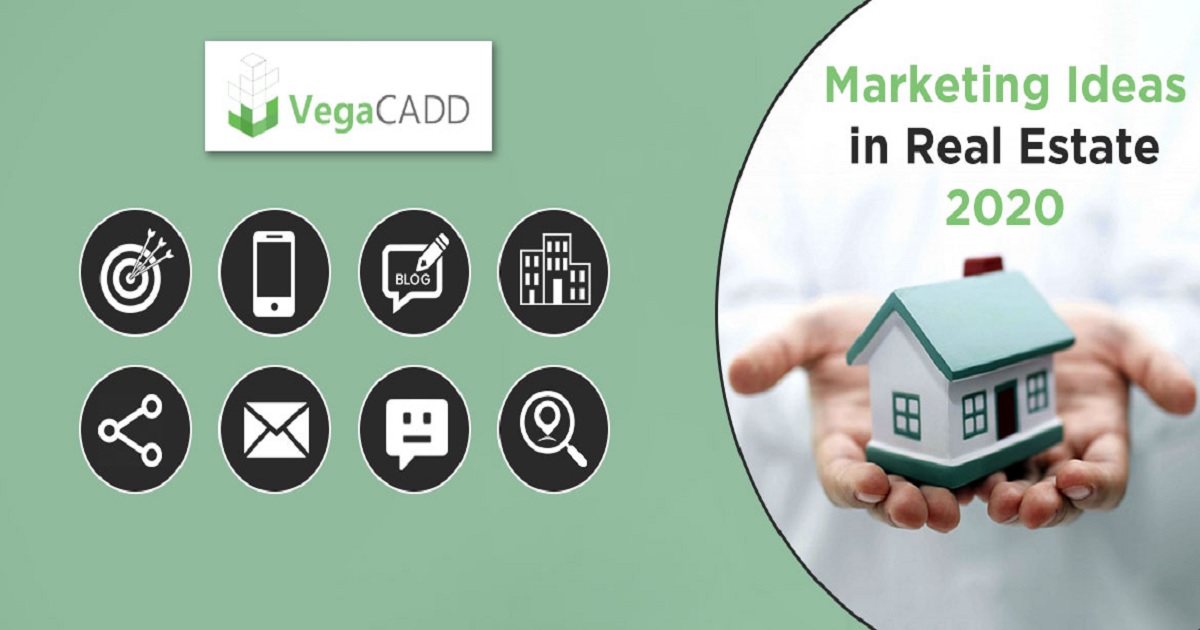
Real Estate Investment, Asset Management
Article | May 25, 2023
Search online for real estate investment strategies, and you’ll be overwhelmed with the information overload that hits you. Self-proclaimed experts, gurus, and never before heard of writers (because everyone has a book these days) keep posting hordes of stuff regarding where you should focus your efforts and what you should put your money into. Read a few of these sources, and you’ll see that most of the stuff is the same. It’s very unusual to find ideas that are starkly different online. Head to the store and buy books on investment strategies. Though definitely not to-the-point and instead highly detailed, once you finish reading, you will find yourself at the same spot you were before. Countless case studies, multiple options, a lot of theory, and no practical application! Don’t fret. My article today isn’t going to give you 10 more real estate investment strategies.
Read More

Real Estate Technology, Asset Management
Article | June 15, 2023
As a realtor, what’s your marketing strategy for getting ahead of the competition? Research shows that over half of all home buyers look for their next home through the internet. And that’s not all, only around 34% approach a real estate agent for help. Unless your clients are able to find you the next time they do an online search, you will be left behind! Here are eight marketing ideas in Real Estate that can help you create a marketing strategy to expand your client list in 2020.
Read More

Real Estate Technology
Article | July 25, 2022
Explore the latest trends, tools, and strategies for optimizing data-driven real estate asset management services and achieving long-term success with a comprehensive guide to improving business ROIs.
Contents
1 Importance of Data-driven Model for Real Estate Asset Management
2 Seven Steps to Measure Data-driven Asset Management
2.1 Defining the Purpose and Scope
2.2 Identifying the KPI
2.3 Determining the Sources
2.4 Collecting and Cleaning Data
2.5 Data Analysis
2.6 Performance Evaluation
2.7 Continuous Monitoring
3 Effectiveness Metrics for Data-Driven Asset Management
3.1 Occupancy Rate
3.2 Operating Expense Ratio
3.3 Tenant Retention Rate
4 Conclusion
1. Importance of Data-driven Model for Real Estate Asset Management
As real estate technology continues to develop and become more cost-effective for both new and existing business structures, and as collaboration platforms, sensors, and smart devices continue to advance, the amount of data produced by commercial real estate assets is growing exponentially. This data can give real estate market participants like investors, asset managers, property managers, and tenants a competitive advantage and help them avoid disruption if they develop data-driven services and new business models centered on the specific needs of users, owners, or the property itself. However, only a concerted effort by all real estate stakeholders including builders, investors, owners, tenants, and service providers towards data-driven real estate asset management can optimize data to generate insights that improve performance and profitability.
The significance of data-driven models in real estate asset management is growing as the models enable more informed decision-making and more efficient operations by collecting and analyzing data from various sources. Real estate asset managers can gain a greater understanding of the performance of their assets and make more informed management decisions. This can result in increased efficiency, profitability, and tenant satisfaction.
2. Seven Steps to Measure Data-driven Asset Management
Measuring the effectiveness of data-driven real estate asset management services enables businesses to evaluate their current strategies and identify areas for improvement in the services they offer By following these steps to measure asset performance, processes, and activities, businesses can gain insights and make data-driven decisions to optimize performance and maximize returns.
2.1 Defining the Purpose and Scope
The process of measuring data-driven real estate asset management services begins with a clear definition of the purpose and scope of the measurement. It involves conducting a comprehensive review of the business goals as well as identifying specific objectives and purposes for the strategies to develop a well-defined purpose and scope for measuring the effectiveness of asset management services. It helps to ensure that the real estate asset management services are aligned with the broader business strategy.
2.2 Identifying the KPIs
Defining the purpose and scope of data-driven asset management is followed by identifying KPIs to measure success. It requires a clear understanding of critical areas of asset management and selecting quantifiable measures to define success factors and track progress. Choosing the right KPIs provides valuable insights into asset performance, enabling real estate executives and managers to make informed, data-driven decisions to optimize performance and maximize returns.
2.3 Determining the Sources
Identifying the data type, including financial, property, market, and tenant, is essential to determine the sources for evaluating data-driven asset management services. After establishing the data requirements, the sources, such as internal systems and databases, third-party data providers, and publicly accessible data sources, are determined with data compliance and security as the determining factor. Determining sources ensures that the asset management data is trustworthy, current, and accurate, which impacts subsequent decision-making. This step provides the groundwork for data-driven decision-making.
2.4 Collecting and Cleaning Data
Data collection and cleansing are essential for measuring data-driven asset management services. The collected data must be precise, exhaustive, and dependable for subsequent analysis and decision-making. The step involves validating the data for completeness and accuracy, eliminating errors, inconsistencies, and duplicates, and standardizing the data across all sources. The process identifies improvement opportunities, optimizing real estate asset management services for maximum efficiency and profitability.
2.5 Data Analysis
Data analysis plays a critical role in measuring data-driven asset management services. After finalizing the data collection and cleaning step, the data is analyzed using various techniques such as statistical analysis, predictive modeling, and data visualization. These techniques help to identify trends, patterns, and relationships that provide insights into asset performance. Data analysis provides a more profound understanding of the performance of real estate assets, leading to improved efficiency, increased profitability, and enhanced tenant satisfaction.
2.6 Performance Evaluation
Evaluation of data performance to comprehend improvements in the data-driven asset management services starts once the data is analyzed. The performance evaluation step involves comparing actual results to the established KPIs to determine whether the goals are being met or whether there are areas for improvement. It aids in identifying deviations from predetermined objectives and prompts and taking required corrective actions to realign with the business strategy. In addition, this step facilitates identifying improvement opportunities and ensures that real estate asset management services are optimized for maximum efficiency and profitability.
2.7 Continuous Monitoring
Measurement of data-driven real estate asset management services ends with continuous monitoring. To ensure asset management strategies are working, continuously tracking and evaluating KPIs from earlier steps while identifying underperformance and improvement opportunities is involved in the last stage. Operation managers can make data-driven choices, identify risks and opportunities, and optimize asset management strategies for efficiency and profitability by monitoring real estate asset performance. In addition, it ensures that real estate asset management services remain effective over time and can adapt to market changes to maintain a competitive edge.
3. Effectiveness Metrics for Data-Driven Asset Management
Effectiveness metrics for data-driven asset management services are the KPIs used to measure the success of data-driven strategies. These metrics help real estate executives and managers evaluate the performance of their assets and make data-driven decisions for maximum efficiency and profitability.
3.1 Occupancy Rate
The occupancy rate is an essential metric in data-driven real estate asset management. This metric indicates the proportion of a property's rental units that are occupied at present. A higher occupancy rate suggests the property performs well, as more tenants occupy the units. Therefore, this metric can be used by real estate businesses to gauge the efficacy of their digital asset management strategies.
3.2 Operating Expense Ratio
The operating expense ratio is used to evaluate a property's operational efficiency for data-driven asset management. It is calculated by dividing the operating expenses incurred by the property by the total rental income generated. It helps measure the proportion of income consumed by the expenses, such as maintenance costs, utilities, and commercial property management fees. A lower operating expense ratio indicates better cost control and efficient use of resources, resulting in increased profitability for the real estate asset.
3.3 Tenant Retention Rate
In real estate asset management, the tenant retention rate is an essential metric that measures the proportion of tenants who choose to renew their lease agreements. It is an essential indicator of tenant satisfaction and the quality of property management services. A higher tenant retention rate indicates that tenants are satisfied with the property and management, resulting in a stable tenant base, lower vacancy rates, and decreased costs associated with tenant turnover.
4. Conclusion
The significance of utilizing data-driven models for real estate asset management is rising due to digital real estate asset management, technological advancements, and the expansion of collaboration platforms, sensors, and intelligent devices. To gain a competitive edge and avoid disruption, stakeholders in the real estate industry must prioritize the development of data-driven services and innovative business models that cater to the unique needs of users, owners, and the property itself. In addition, the use of data-driven models can also lead to more efficient and informed decision-making, reducing costs along with increasing profits and improving real estate portfolio management.
Read More

Real Estate Advice
Article | September 15, 2021
Impactful service-enriched housing programs and onsite supportive services build a foundation for serving the unique needs of a rental community’s tenant base. Quality services that address the individual concerns of each resident help eliminate the challenges that force turnover and increased expenses for property managers. Service-enriched housing includes the incorporation of programs and services within a community that advances the social and economic skill set of tenants.
Meeting net operating income (NOI) and covering debt service obligations are key performance indicators for property managers. Tenants must be valued because they are crucial to improving the financial performance of a community or property. Without support in discovering a realistic path to self-sufficiency, these improvements made will not promote the stabilization of a tenant population.
The key outcome for a community through the implementation of service-enriched housing programs is internal revitalization. Tenants benefit socially and economically from services that support access to job readiness, education and financial growth. During this time of economic instability, our resident services coordinators help remove barriers that plague many living in rental housing communities. Through its partnership with Esusu, Rainbow has alleviated tenants’ significant economic hardship by bridging default payments with no-interest loans. Tenants can use the company’s rent reporting platform, which sends on-time rental payment data to the three major credit bureaus – allowing them to build and develop their credit scores.
Prioritizing tenant empowerment offers tangible and intangible changes in a property, leading to increased financial performance and improved tenant retention. It also reduces turnover costs for property management such as flooring, paint and reletting fees. Free programs and services also improve the marketability of a property to prospective tenants. Rainbow communities have seen a reduction in community vandalism since the implementation of youth enrichment programs that keep children engaged and supported in their education.
Quality service-enriched housing programs, such as those offered by Rainbow Housing Assistance Corporation, provide direct access to resources that support the needs of physically and mentally disabled individuals, veterans, chronically homeless, single-parent households, families and seniors. Additionally, this type of outreach attracts the interest of local city, state and federal agencies as it helps stabilize the most vulnerable communities, cutting city and government expenses on a number of levels. This type of approval can even lead to further funding and support for initiatives that will enrich the future of affordable housing services.
Key programs and resources address life skills, financial intelligence, education, employment, youth and senior programs, resources to eliminate emergency situations, and social development in a multifamily community. The implementation of a professional, service-enriched housing program with onsite staff ensures that these offerings are tailored to each community and primed for longevity. A stable tenant base will determine the solvency of a community and reposition the financial performance of an asset.
Read More